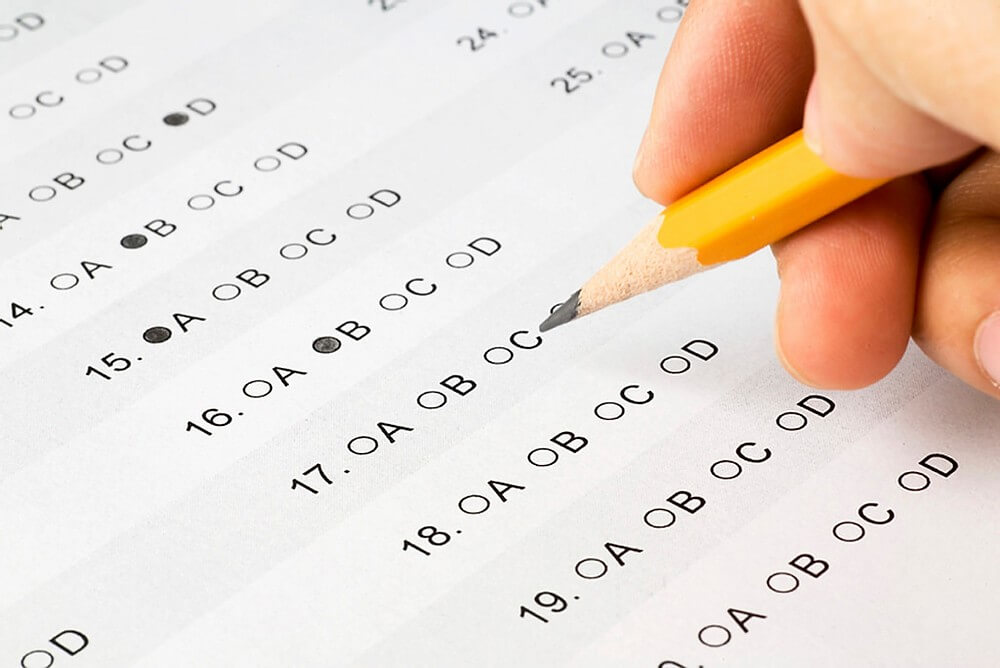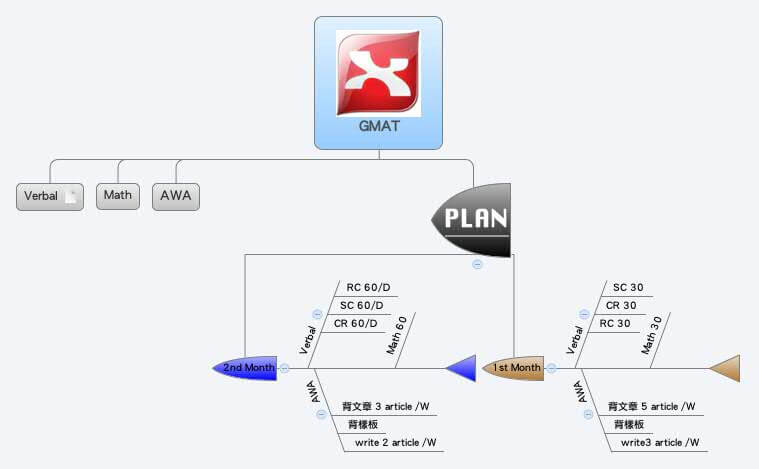How to Study for the GMAT: The Beginner's Guide

By permitting yourself to prepare for the GMAT, you will have a great chance to invest the energy important to get your most ideal score. Your greatest test might be keeping up your motivation and momentum over this period. Ponder potential disturbances to your investigation plan, for example, occupied periods at work or school or family duties, and plan as needs are.
While planning, you can consider partitioning your examination time into two sections. During the initial two months, center around acing the key ways to deal with each sort of inquiry on the GMAT, just as the punctuation and math content knowledge you'll have to get questions right. During the most recent month, while learning on how to prepare for GMAT, the development to the greatest execution on Test Day: center around responding to questions all the more rapidly by doing coordinated practice and challenge yourself with harder questions.
What is the GMAT test?
What is the GMAT, and who needs to take it?
The GMAT (Graduate Management Admission Test) is a government-sanctioned test that expects to foresee your scholarly presentation as a future MBA (Masters in Business Administration) understudy. The GMAT test score is a significant piece of the business college application cycle, and it is mulled over alongside your work understanding, academic record, and supporting materials. The GMAT is created by GMAC (Graduate Management Admission Council) which decides the sorts of abilities that the GMAT test should quantify, and how to prepare for GMAT.
The GMAT structure
The GMAT is a different decision, versatile (CAT-Computer Adaptive Test) test that adjusts to your presentation as you're stepping through the exam. As you answer questions effectively, the PC presents more earnestly questions and builds its gauge of your capacity and the other way around. The test is PC based and is regulated in chosen areas. The test takes about 3.5 hours to finish, which incorporates test-requiring significant investment and breaks while learning how to prepare for GMAT.
The GMAT test is partitioned into four segments, each estimating an alternate ability and ready to be taken in your request for inclination: logical composition, quantitative thinking, verbal thinking, and incorporated thinking. These four aptitude sections come to in 4 different subjects and areas on the test. The GMAT test taker will have the option to choose the areas request. Each segment gets a different scaled score:
- The Analytical composing appraisal segment is scored on a 0 to 6 scale
- The Integrated Reasoning area is scored on a 1 to 8 scale.
- The Quantitative and Verbal areas and sections of the test in that each has a scaled score of 0–60.
- They are then joined to produce an exhaustive score on a 200–800 scale.
- They are then joined to create a score on 200–800 scale.
The GMAT's last score mirrors the degree of trouble of the questions the test takers addressed effectively utilizing an exclusive GMAC calculation.
What amount does it cost?
Taking a GMAT test will cost you $250, and it incorporates sending your score reports to up to 5 most loved projects. Thus, it's essential to take the GMAT when everything looks right for you and to choose the correct prep course to limit the probability of expecting to retake the test.
How to do Preparation for GMAT?
Here, we'll give you a few recommendations for materials that might be useful to you as you start your independently directed GMAT prep on how to prepare for GMAT.
For more than three hours, the GMAT will test you on investigative composition, quantitative thinking, verbal thinking, and incorporated thinking. Blending a monstrous measure of data in with time limitations is a formula for stress and uneasiness.
Practice Exams

Practice tests are the place you should begin and finish your GMAT arrangements. Taking a practice test will give a benchmark to you to pass judgment on your present inclination and make a gauge from which to pass judgment on your future test outcomes.
These tests can be helpful to you in different manners also.
To be fruitful on the GMAT, you should have parity in your methodology and range of abilities. It isn't just about the knowledge you have expended, yet how you can respond to questions as well as could be expected inside time limitations. In such a manner, taking practice tests will benefit you in two significant manners:
- You'll have the option to distinguish the regions wherein you need improvement.
- You'll progressively build up your testing endurance and have the option to measure your planning for the length of the genuine test.
Mind Mapping

Mind mapping technique and practice helps you as much as expected with these so whatever ideas you produce are identified and retained with the topic you are reading and can be associated later with one another in a way that will be easy to recall when you need It too.
Mind mapping also encourages and motivates you to concentrate and pay attention more to the given topic. At the point when you are writing without utilizing this technique, you make it a few ideas. However, it can't be ensured that these ideas will be retained in your mind when you are writing if you don't remember the ideas, as you will be feeling the squeeze in the exam corridor. This may lead to a further decrease in the GMAT score that you will acquire on learning how to prepare for GMAT.
How Long would it be advisable for you to study for the GMAT?
Regarding how long every day to consider, you should take a gander at how much time you have accessible versus the hours suggested previously. We recommend that you concentrate on in any event 1.5 hours per non-weekend day and 4+ hours at the end of the weekdays (expecting you have a customary work-week plan).
You ought to likewise focus on your own needs. For instance, if you are learning how to prepare for GMAT and if you locate that 4 hours of study is excessively and you are not retaining data, at that point, lessen the number of hours you learn at once. It is counterproductive to keep considering in case you're excessively depleted.
You ought to likewise take brief breaks after every hour of concentrating on clearing your head and restoring your vitality. In a perfect world, 10-17 examination hours out of each week is an acceptable objective. However, this can undoubtedly go up or down, dependent on your accessibility and how soon your test is coming.
Instructions to build up your GMAT study plan
Your examination plan relies upon who you regard study timing and propensities. As for the aptitudes fundamental for this test, everything you need to know is in this article. Numerous GMAT understudies work all day, go to school or have families, so that is a considerable amount to shuffle. Be that as it may, don't surrender! The best exhortation is to set a timetable that you feel great with. Attempt to adjust what you can do with what you should do on how to prepare for GMAT.
It is doubtlessly better to do shorter study sessions like 30 to 40 minutes in a steady progression and up to an hour max, rather than unnecessarily long gatherings. If you find that you are not immersing information, by then stop. It is counterproductive to continue with when you are exhausted. Ideally, around eight to eighteen hours of mulling over consistently are worthy, yet this can, without a very remarkable stretch, go up or down subject to availability and need.
Tips and Tricks for a Day before the GMAT test
The day before the GMAT
- Try not to overstrain yourself on the day preceding your test.
- Try not to pack in practice tests. What hasn't soaked in at this point won't mysteriously hold itself up in your mind for the time being.
- Do get done with concentrating early. Take the night off to accomplish something fun and unwinding.
- Do get a decent night's rest.
Test day
- Do get up right on time, have breakfast, and show up at the test place, in any event, thirty minutes before your booked test time.
- Do make sure to bring your identification as a picture ID and water and a vitality bar or other light reward to eat during the breaks.
- Do play out a warm-up directly before the test. Fathom a couple of simple questions to get into "math mode."
- Do remain idealistic. On the off chance that the questions appear to be excessively troublesome, that may be a decent sign as your score is subject to the trouble level, you figure out how to get from the calculation. Remain quiet, work rapidly yet efficiently without surging or bouncing into ends.
- Try not to let any single inquiry remove you from your pace of core interest.
Conclusion
These were all the tips and tricks you need to know before learning how to prepare for GMAT. Just focus on the material and follow these guidelines are you are good to go.
